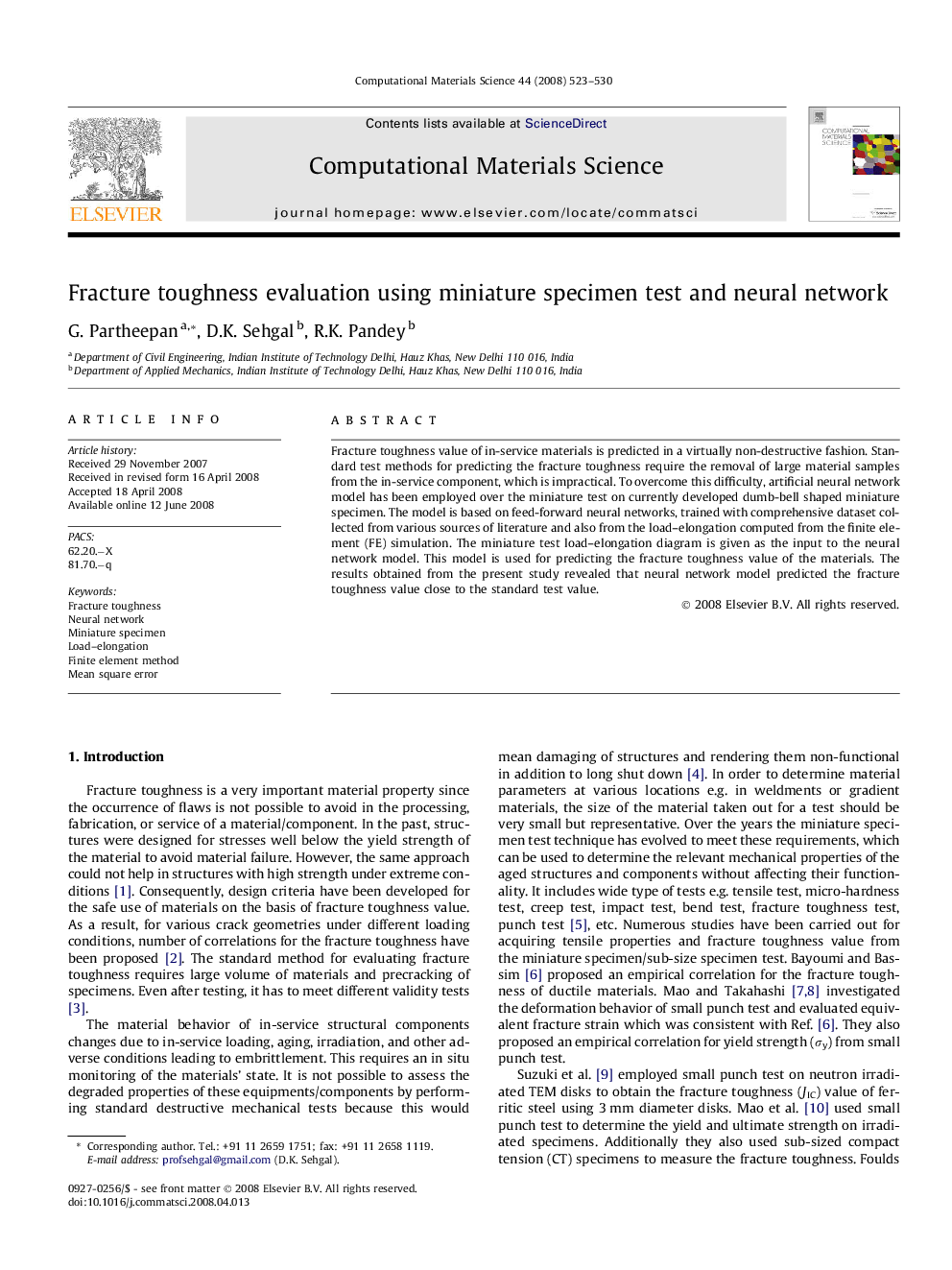| Article ID | Journal | Published Year | Pages | File Type |
|---|---|---|---|---|
| 1563216 | Computational Materials Science | 2008 | 8 Pages |
Abstract
Fracture toughness value of in-service materials is predicted in a virtually non-destructive fashion. Standard test methods for predicting the fracture toughness require the removal of large material samples from the in-service component, which is impractical. To overcome this difficulty, artificial neural network model has been employed over the miniature test on currently developed dumb-bell shaped miniature specimen. The model is based on feed-forward neural networks, trained with comprehensive dataset collected from various sources of literature and also from the load-elongation computed from the finite element (FE) simulation. The miniature test load-elongation diagram is given as the input to the neural network model. This model is used for predicting the fracture toughness value of the materials. The results obtained from the present study revealed that neural network model predicted the fracture toughness value close to the standard test value.
Keywords
Related Topics
Physical Sciences and Engineering
Engineering
Computational Mechanics
Authors
G. Partheepan, D.K. Sehgal, R.K. Pandey,
